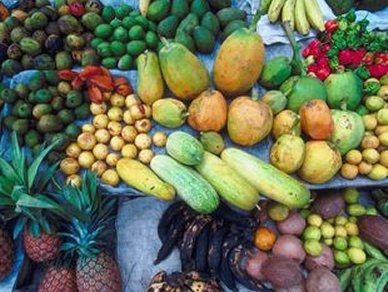Fruits, such as apples, grown in temperate climates and fertile soils are rich in flavonoids and phenolic compounds, chemicals with important antioxidant properties. The antioxidant activity of fruit grown in arid climates and acid soils has, however, been rarely studied.
To clarify this issue, Egle Machado de Almeida Siqueira and colleagues, Universidade de Brasilia, Brazil, examined twelve fruits growing in the Cerrado, tropical Brazilian savanna. When compared to Red Delicious apples, which are considered among the most antioxidant-rich foods, fruits from the Cerrado showed a greater content of bioactive compounds and excellent antioxidant activity. The total level of flavonols present in two of the fruits examined, such as araticum and tucum, was 15 to 19-fold higher than the levels measured in apples.
Similarly, phenolic compounds were present at elevated concentrations in nine of the twelve fruits studied, that is, cagaita, cajuzinho, ingá, jenipapo, jurubeba, lobeira, magaba, asaraticum, and tucum. The elevated levels of flavonols and phenolic compounds, moreover, correlated with the strong antioxidant activity measured in these fruits.
Brazilian Savanna Fruits thus represent an important source of bioactive compounds having beneficial properties.
- Brazilian Savanna Fruits Contain Higher Bioactive Compounds Content and Higher Antioxidant Activity Relative to the Conventional Red Delicious Apple,
Tianzhen Zhang, Egle Machado de Almeida Siqueira, Fernanda Ribeiro Rosa, Adriana Medeiros Fustinoni, Lívia Pimentel de Sant’Ana, Sandra Fernandes Arruda,
PLoS ONE 2013, 8, e72826.
DOI: 10.1371/journal.pone.0072826




